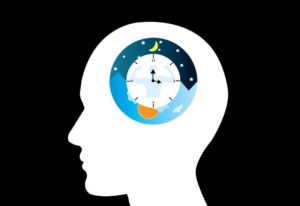Operating on the approximately 24-hour circadian rhythm that mirrors the earth’s day-night cycle, the circadian clock plays a vital role in regulating the timing of essential bodily processes. As such, the circadian clock is tightly connected to human health. Chronic circadian rhythm disruption, such as that typically experienced by shift workers, significantly increases the risk of cancer, leading to such disruption being classified as a carcinogen. For optimal cellular function and health, it is essential to preserve a healthy circadian rhythm.
How Cancer And the Circadian Clock are Connected

The connection between the circadian clock and cancer lies in the role that the circadian clock plays in the function and health of cells. Circadian rhythms are powerful drivers of physical processes, all the way down to the cellular level, with even the functioning of individual cells influenced by circadian rhythms. The circadian clock functions as a master clock, synchronizing the timing functions of all of the body’s individual body clocks, keeping multiple highly complex systems working together as an integrated whole in support of overall health and well-being.
There are a number of ways that disruptions impacting the circadian clock contribute to increased cancer risks. Study results have shown that circadian rhythm disruption is associated with dysfunction in genes that suppress tumor development and growth. Circadian rhythms impact each stage of the cell life cycle, including division and replication, with disruptions potentially having a negative impact on these processes. Chronic circadian disruption can impact hormone production and metabolism, both of which rely on precisely timed chemical reactions, increasing the risk of hormone-related cancers, including breast cancer.
Researchers are finding that, when it comes to treating cancer, there are also links between the circadian clock and how well cancer drugs work. Circadian rhythm disruption can decrease the efficacy of cancer treatments by contributing to poor cell function, decreased immune system response and sub-par metabolic system function. Another point of connection between the circadian clock and cancer treatment lies in the element of timing. There is a growing body of evidence that shows the timing of anti-cancer medicines can impact how well they work. Taking medications with a deeper understanding of the diurnal activity pattern of cells can yield better, more efficient results.
Chronotherapy Holds Potential Benefits for Cancer Treatment
Chronobiology is a field of biology focused on the natural rhythms, patterns and timing that support biological functions. This biological field has a broad array of medical applications, often described by the term chronotherapy, with the most familiar being the treatment of sleeping disorders. With the increased body of knowledge surrounding the impact of circadian rhythms on physical functioning and health, the use of chronotherapy in devising treatment plans for other ailments and diseases has expanded to include cancer treatment.
Planning the timing of anti-cancer medications to take advantage of the body’s natural rhythms has shown promise. For example, planning medication use according to peaks and valleys of cellular activity, such as cell growth and repair, DNA repair and metabolic function, can allow those drugs to better achieve their medical goals and potentially reduce the negative impact of drug side effects. Working with a person’s individual circadian rhythm allows treatment to be specifically customized to the individual patient; something that can have a positive impact on treatment success rates.
Chronotherapy can also be used to help restore a more balanced, healthier circadian rhythm. This, in turn, can help strengthen immune response and activate tumor fighting killer cells. Using the information chronobiology provides about the mechanics and timing of metabolism to create a chronotherapy based nutrition plan can be a valuable part of supporting a healthy circadian rhythm, a strong immune system and overall cellular health and functioning, all of which are essential to cancer treatment success.
Protect Your Circadian Clock and Your Health

Light, physical activity and food intake are among the most important cues for your circadian rhythm. Keep your meal times regular and avoid heavy evening meals, especially within two hours of bedtime. Eat nutritious, whole foods and avoid highly processed foods. Get enough physical activity daily, making a special effort to get some of that activity outside in the morning sun.







